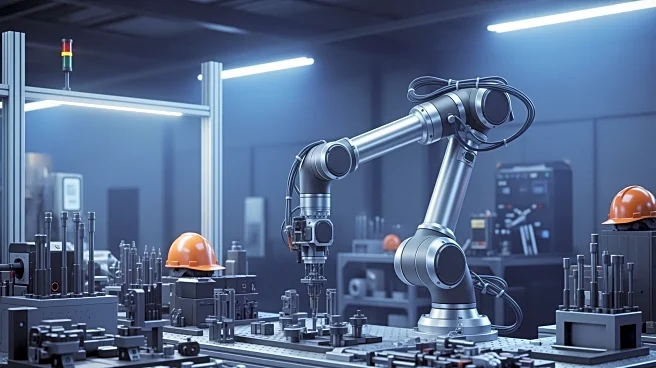What's Happening?
The Iowa Association of Business and Industry hosted its annual manufacturing conference, focusing on automation, workforce, and supply chain issues. Panelists, including industry leaders and Iowa Economic Development Authority Director Debi Durham, discussed
the state's manufacturing sector, which is Iowa's largest economic sector. The conference emphasized the need for skilled workers, the impact of tariffs, and the integration of artificial intelligence and automation in manufacturing processes. Iowa's Manufacturing 4.0 initiative aims to modernize the industry through technology, with significant investments in projects to enhance competitiveness.
Why It's Important?
The conference underscores the critical role of manufacturing in Iowa's economy, highlighting challenges such as workforce shortages and the need for technological advancements. Automation and AI are reshaping the industry, requiring new skills and creating opportunities for innovation. The focus on local supply chains and traceability reflects broader trends in manufacturing, as companies seek to mitigate geopolitical risks and ensure product authenticity. These developments have implications for economic growth, job creation, and the state's ability to compete globally.
What's Next?
Iowa's manufacturing sector may continue to evolve with increased investment in technology and workforce development. The state's Manufacturing 4.0 initiative could drive further modernization, attracting new businesses and enhancing productivity. Stakeholders, including government officials and industry leaders, may collaborate to address workforce challenges and promote Iowa as a hub for manufacturing innovation. The emphasis on local supply chains and traceability could lead to policy changes and new business strategies.
Beyond the Headlines
The integration of AI and automation in manufacturing raises ethical and cultural questions about the future of work and the role of technology in society. As companies adopt new technologies, they must consider the impact on employees and communities, balancing efficiency with social responsibility. The shift towards local supply chains may also reflect changing consumer values, with increased demand for transparency and sustainability in production processes.















